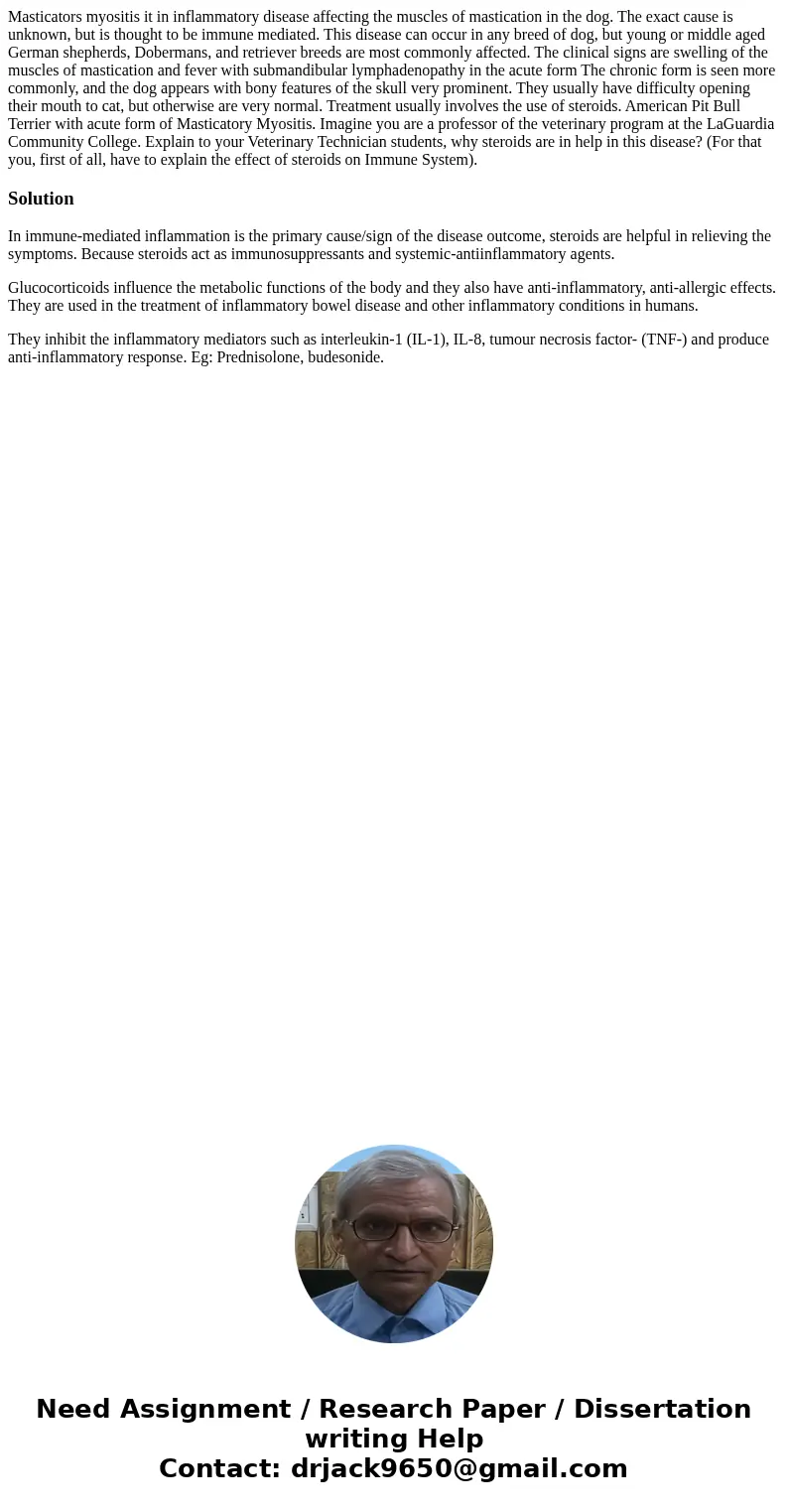Masticators myositis it in inflammatory disease affecting th
Masticators myositis it in inflammatory disease affecting the muscles of mastication in the dog. The exact cause is unknown, but is thought to be immune mediated. This disease can occur in any breed of dog, but young or middle aged German shepherds, Dobermans, and retriever breeds are most commonly affected. The clinical signs are swelling of the muscles of mastication and fever with submandibular lymphadenopathy in the acute form The chronic form is seen more commonly, and the dog appears with bony features of the skull very prominent. They usually have difficulty opening their mouth to cat, but otherwise are very normal. Treatment usually involves the use of steroids. American Pit Bull Terrier with acute form of Masticatory Myositis. Imagine you are a professor of the veterinary program at the LaGuardia Community College. Explain to your Veterinary Technician students, why steroids are in help in this disease? (For that you, first of all, have to explain the effect of steroids on Immune System).
Solution
In immune-mediated inflammation is the primary cause/sign of the disease outcome, steroids are helpful in relieving the symptoms. Because steroids act as immunosuppressants and systemic-antiinflammatory agents.
Glucocorticoids influence the metabolic functions of the body and they also have anti-inflammatory, anti-allergic effects. They are used in the treatment of inflammatory bowel disease and other inflammatory conditions in humans.
They inhibit the inflammatory mediators such as interleukin-1 (IL-1), IL-8, tumour necrosis factor- (TNF-) and produce anti-inflammatory response. Eg: Prednisolone, budesonide.

 Homework Sourse
Homework Sourse